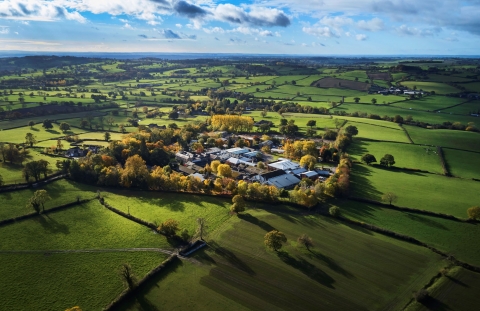Derbyshire companies mark British Science Week by celebrating work with global impact

CUTTING edge science is happening all around us here in Derbyshire. To mark British Science Week which runs until March 19, we speak to scientists working in companies right on our doorstep whose work is having an impact all over the world.
MORE and more of us are seeing the benefits of vitamins and supplements to maintain our health – but have you ever stopped to wonder how they’re made, and how each one is exactly the same?
Step forward the scientists working at IVC Brunel Healthcare in Swadlincote, a 30,000 square metre facility in William Nadin Way which is the UK’s biggest producer of vitamins and supplements, working on behalf of top retailers and exporting to global brands to benefit customers in Europe, Asia, Australia and the USA.
To support its work manufacturing four and a half billion tablets a year, IVC Brunel has laboratory facilities in which scientists are using their expertise to ensure every tablet they produce is of the same high quality.
One of them is Nicholas Hawley, a forensic and analytical chemistry graduate, who uses his expertise in his job as a quality control project co-ordinator.
With as many as 30 different ingredients making up each tablet, it’s a job that requires a high level of precision from Nicholas and his team – whose work supports the quality control of IVC Brunel’s products around the world.
“I’ve been here for eight and a half years and I’ve moved up through quite a range of roles within the quality department,” he explains.
“The work is always changing to meet the demands of new customers and to keep up with emerging technologies. We develop and validate testing methods to ensure that the products meet our stringent quality demands.
“I’m sure most people don’t realise what we do in this company. Our work in the laboratory is very bespoke, we can’t use an off the shelf solution for what we do. It presents all sorts of challenges and it’s a very interesting job for people who like to solve problems, people who have technical minds, and who are interested in the how and why of things.”
Also in Derbyshire, based in the heart of glorious Dales countryside in Hazelwood near Belper, is the UK research and development headquarters of science company Lubrizol.
This is where Dr Trish Kilsby is based, a technology manager whose work involves designing finely balanced formulations that are used in tractors all around the world.
Thousands of farmers in Europe, the USA and India won’t know that Dr Kilsby’s work has led to the smooth running of their agricultural vehicles, and, as a result: a higher level of food production and profit. But if it wasn’t for her chemistry expertise, they would find their tractors wouldn’t work for as long, or as well.
And, because of the very different environments in which the farmers who benefit from Dr Kilsby’s work are based – rice farming in India is a whole other proposition from the arable fields of Europe – she must tailor the lubricants she makes according to where they will be used.
“The lubricants we design help the tractor work,” she explains. “Particularly in India, water can get into the tractors so we make sure the fluid we formulate can work in those conditions.”
A chemistry graduate of Loughborough University, where she also did her PHD, Dr Kilsby has worked at Lubrizol for 10 years.
She loves her work, which involves constant change and innovation to respond to updated tractor designs.
“The equipment on the tractors is constantly changing as we look to the future, and it will keep changing. Tractors may well start to use electrified parts, for example,” she says.
Many people in Derbyshire, or in the UK, may well be unaware that high-level work such as Dr Kilsby’s is being done here, or how much of an impact it has in so many parts of the world.
“Many vehicles on the road today drive around using our chemistry,” says Dr Kilsby. “Nobody would think that this unassuming site just outside Belper could have this huge impact!”
